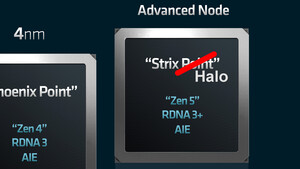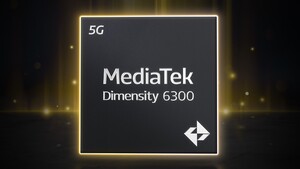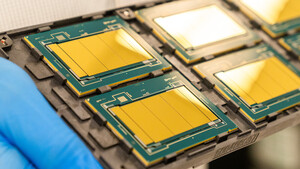ossytheginger
Cadet 1st Year
- Registriert
- Feb. 2017
- Beiträge
- 14
Hallo! Ich habe Microstutter in Online-Games, vorallem wenn ich zb. über Discord streame werden diese Microruckler mehr.
Mein Setup: http://speccy.piriform.com/results/BCazisusXJHHskDgocZSKTs
Habe das neueste Bios-Update, Windows paar mal neu aufgesetzt, RAM und C-State Energiesparmodi im Bios ausgemacht, Nvidia Treiber mit DDU deinstalliert verschiedene ausprobiert, neues Mainboard, Treiber neu installiert und trotzdem ist das Problem noch vorhanden.
LatencyMon zeigt das an:
_________________________________________________________________________________________________________
CONCLUSION
_________________________________________________________________________________________________________
Your system appears to be suitable for handling real-time audio and other tasks without dropouts.
LatencyMon has been analyzing your system for 0:32:11 (h:mm:ss) on all processors.
_________________________________________________________________________________________________________
SYSTEM INFORMATION
_________________________________________________________________________________________________________
Computer name: DESKTOP-NID0MPV
OS version: Windows 10, 10.0, version 2004, build: 19041 (x64)
Hardware: To Be Filled By O.E.M., To Be Filled By O.E.M.
CPU: AuthenticAMD AMD Ryzen 5 2600X Six-Core Processor
Logical processors: 12
Processor groups: 1
RAM: 16315 MB total
_________________________________________________________________________________________________________
CPU SPEED
_________________________________________________________________________________________________________
Reported CPU speed: 3593 MHz
Note: reported execution times may be calculated based on a fixed reported CPU speed. Disable variable speed settings like Intel Speed Step and AMD Cool N Quiet in the BIOS setup for more accurate results.
_________________________________________________________________________________________________________
MEASURED INTERRUPT TO USER PROCESS LATENCIES
_________________________________________________________________________________________________________
The interrupt to process latency reflects the measured interval that a usermode process needed to respond to a hardware request from the moment the interrupt service routine started execution. This includes the scheduling and execution of a DPC routine, the signaling of an event and the waking up of a usermode thread from an idle wait state in response to that event.
Highest measured interrupt to process latency (µs): 678,40
Average measured interrupt to process latency (µs): 4,414993
Highest measured interrupt to DPC latency (µs): 674,90
Average measured interrupt to DPC latency (µs): 1,834413
_________________________________________________________________________________________________________
REPORTED ISRs
_________________________________________________________________________________________________________
Interrupt service routines are routines installed by the OS and device drivers that execute in response to a hardware interrupt signal.
Highest ISR routine execution time (µs): 323,288617
Driver with highest ISR routine execution time: dxgkrnl.sys - DirectX Graphics Kernel, Microsoft Corporation
Highest reported total ISR routine time (%): 0,080893
Driver with highest ISR total time: dxgkrnl.sys - DirectX Graphics Kernel, Microsoft Corporation
Total time spent in ISRs (%) 0,082866
ISR count (execution time <250 µs): 1302091
ISR count (execution time 250-500 µs): 0
ISR count (execution time 500-1000 µs): 1
ISR count (execution time 1000-2000 µs): 0
ISR count (execution time 2000-4000 µs): 0
ISR count (execution time >=4000 µs): 0
_________________________________________________________________________________________________________
REPORTED DPCs
_________________________________________________________________________________________________________
DPC routines are part of the interrupt servicing dispatch mechanism and disable the possibility for a process to utilize the CPU while it is interrupted until the DPC has finished execution.
Highest DPC routine execution time (µs): 372,995269
Driver with highest DPC routine execution time: ndis.sys - NDIS (Network Driver Interface Specification), Microsoft Corporation
Highest reported total DPC routine time (%): 0,050829
Driver with highest DPC total execution time: ndis.sys - NDIS (Network Driver Interface Specification), Microsoft Corporation
Total time spent in DPCs (%) 0,157414
DPC count (execution time <250 µs): 3329318
DPC count (execution time 250-500 µs): 0
DPC count (execution time 500-10000 µs): 41
DPC count (execution time 1000-2000 µs): 0
DPC count (execution time 2000-4000 µs): 0
DPC count (execution time >=4000 µs): 0
_________________________________________________________________________________________________________
REPORTED HARD PAGEFAULTS
_________________________________________________________________________________________________________
Hard pagefaults are events that get triggered by making use of virtual memory that is not resident in RAM but backed by a memory mapped file on disk. The process of resolving the hard pagefault requires reading in the memory from disk while the process is interrupted and blocked from execution.
NOTE: some processes were hit by hard pagefaults. If these were programs producing audio, they are likely to interrupt the audio stream resulting in dropouts, clicks and pops. Check the Processes tab to see which programs were hit.
Process with highest pagefault count: chrome.exe
Total number of hard pagefaults 9702
Hard pagefault count of hardest hit process: 1861
Number of processes hit: 51
_________________________________________________________________________________________________________
PER CPU DATA
_________________________________________________________________________________________________________
CPU 0 Interrupt cycle time (s): 87,809681
CPU 0 ISR highest execution time (µs): 323,288617
CPU 0 ISR total execution time (s): 19,053682
CPU 0 ISR count: 1131086
CPU 0 DPC highest execution time (µs): 372,995269
CPU 0 DPC total execution time (s): 32,323257
CPU 0 DPC count: 3000238
_________________________________________________________________________________________________________
CPU 1 Interrupt cycle time (s): 5,327588
CPU 1 ISR highest execution time (µs): 96,818258
CPU 1 ISR total execution time (s): 0,035184
CPU 1 ISR count: 25561
CPU 1 DPC highest execution time (µs): 333,718898
CPU 1 DPC total execution time (s): 0,655410
CPU 1 DPC count: 28327
_________________________________________________________________________________________________________
CPU 2 Interrupt cycle time (s): 3,829723
CPU 2 ISR highest execution time (µs): 6,632897
CPU 2 ISR total execution time (s): 0,003088
CPU 2 ISR count: 2028
CPU 2 DPC highest execution time (µs): 179,058169
CPU 2 DPC total execution time (s): 0,213217
CPU 2 DPC count: 28949
_________________________________________________________________________________________________________
CPU 3 Interrupt cycle time (s): 2,608586
CPU 3 ISR highest execution time (µs): 11,322015
CPU 3 ISR total execution time (s): 0,000597
CPU 3 ISR count: 327
CPU 3 DPC highest execution time (µs): 72,991929
CPU 3 DPC total execution time (s): 0,035944
CPU 3 DPC count: 4967
_________________________________________________________________________________________________________
CPU 4 Interrupt cycle time (s): 6,964651
CPU 4 ISR highest execution time (µs): 3,406624
CPU 4 ISR total execution time (s): 0,000143
CPU 4 ISR count: 104
CPU 4 DPC highest execution time (µs): 197,173393
CPU 4 DPC total execution time (s): 2,313178
CPU 4 DPC count: 165162
_________________________________________________________________________________________________________
CPU 5 Interrupt cycle time (s): 2,475623
CPU 5 ISR highest execution time (µs): 0,0
CPU 5 ISR total execution time (s): 0,0
CPU 5 ISR count: 0
CPU 5 DPC highest execution time (µs): 69,675480
CPU 5 DPC total execution time (s): 0,015236
CPU 5 DPC count: 3486
_________________________________________________________________________________________________________
CPU 6 Interrupt cycle time (s): 3,900372
CPU 6 ISR highest execution time (µs): 0,0
CPU 6 ISR total execution time (s): 0,0
CPU 6 ISR count: 0
CPU 6 DPC highest execution time (µs): 291,837462
CPU 6 DPC total execution time (s): 0,586292
CPU 6 DPC count: 53462
_________________________________________________________________________________________________________
CPU 7 Interrupt cycle time (s): 2,178303
CPU 7 ISR highest execution time (µs): 0,0
CPU 7 ISR total execution time (s): 0,0
CPU 7 ISR count: 0
CPU 7 DPC highest execution time (µs): 31,791817
CPU 7 DPC total execution time (s): 0,008297
CPU 7 DPC count: 1455
_________________________________________________________________________________________________________
CPU 8 Interrupt cycle time (s): 3,826590
CPU 8 ISR highest execution time (µs): 25,790148
CPU 8 ISR total execution time (s): 0,10010
CPU 8 ISR count: 123611
CPU 8 DPC highest execution time (µs): 65,777901
CPU 8 DPC total execution time (s): 0,215704
CPU 8 DPC count: 28966
_________________________________________________________________________________________________________
CPU 9 Interrupt cycle time (s): 2,314470
CPU 9 ISR highest execution time (µs): 5,530754
CPU 9 ISR total execution time (s): 0,001233
CPU 9 ISR count: 1285
CPU 9 DPC highest execution time (µs): 79,634846
CPU 9 DPC total execution time (s): 0,009554
CPU 9 DPC count: 1397
_________________________________________________________________________________________________________
CPU 10 Interrupt cycle time (s): 2,989115
CPU 10 ISR highest execution time (µs): 11,772892
CPU 10 ISR total execution time (s): 0,007190
CPU 10 ISR count: 7366
CPU 10 DPC highest execution time (µs): 66,689674
CPU 10 DPC total execution time (s): 0,083397
CPU 10 DPC count: 9588
_________________________________________________________________________________________________________
CPU 11 Interrupt cycle time (s): 2,920580
CPU 11 ISR highest execution time (µs): 6,021709
CPU 11 ISR total execution time (s): 0,009716
CPU 11 ISR count: 10724
CPU 11 DPC highest execution time (µs): 69,795714
CPU 11 DPC total execution time (s): 0,034101
CPU 11 DPC count: 3362
_________________________________________________________________________________________________________
Mein Setup: http://speccy.piriform.com/results/BCazisusXJHHskDgocZSKTs
Habe das neueste Bios-Update, Windows paar mal neu aufgesetzt, RAM und C-State Energiesparmodi im Bios ausgemacht, Nvidia Treiber mit DDU deinstalliert verschiedene ausprobiert, neues Mainboard, Treiber neu installiert und trotzdem ist das Problem noch vorhanden.
LatencyMon zeigt das an:
_________________________________________________________________________________________________________
CONCLUSION
_________________________________________________________________________________________________________
Your system appears to be suitable for handling real-time audio and other tasks without dropouts.
LatencyMon has been analyzing your system for 0:32:11 (h:mm:ss) on all processors.
_________________________________________________________________________________________________________
SYSTEM INFORMATION
_________________________________________________________________________________________________________
Computer name: DESKTOP-NID0MPV
OS version: Windows 10, 10.0, version 2004, build: 19041 (x64)
Hardware: To Be Filled By O.E.M., To Be Filled By O.E.M.
CPU: AuthenticAMD AMD Ryzen 5 2600X Six-Core Processor
Logical processors: 12
Processor groups: 1
RAM: 16315 MB total
_________________________________________________________________________________________________________
CPU SPEED
_________________________________________________________________________________________________________
Reported CPU speed: 3593 MHz
Note: reported execution times may be calculated based on a fixed reported CPU speed. Disable variable speed settings like Intel Speed Step and AMD Cool N Quiet in the BIOS setup for more accurate results.
_________________________________________________________________________________________________________
MEASURED INTERRUPT TO USER PROCESS LATENCIES
_________________________________________________________________________________________________________
The interrupt to process latency reflects the measured interval that a usermode process needed to respond to a hardware request from the moment the interrupt service routine started execution. This includes the scheduling and execution of a DPC routine, the signaling of an event and the waking up of a usermode thread from an idle wait state in response to that event.
Highest measured interrupt to process latency (µs): 678,40
Average measured interrupt to process latency (µs): 4,414993
Highest measured interrupt to DPC latency (µs): 674,90
Average measured interrupt to DPC latency (µs): 1,834413
_________________________________________________________________________________________________________
REPORTED ISRs
_________________________________________________________________________________________________________
Interrupt service routines are routines installed by the OS and device drivers that execute in response to a hardware interrupt signal.
Highest ISR routine execution time (µs): 323,288617
Driver with highest ISR routine execution time: dxgkrnl.sys - DirectX Graphics Kernel, Microsoft Corporation
Highest reported total ISR routine time (%): 0,080893
Driver with highest ISR total time: dxgkrnl.sys - DirectX Graphics Kernel, Microsoft Corporation
Total time spent in ISRs (%) 0,082866
ISR count (execution time <250 µs): 1302091
ISR count (execution time 250-500 µs): 0
ISR count (execution time 500-1000 µs): 1
ISR count (execution time 1000-2000 µs): 0
ISR count (execution time 2000-4000 µs): 0
ISR count (execution time >=4000 µs): 0
_________________________________________________________________________________________________________
REPORTED DPCs
_________________________________________________________________________________________________________
DPC routines are part of the interrupt servicing dispatch mechanism and disable the possibility for a process to utilize the CPU while it is interrupted until the DPC has finished execution.
Highest DPC routine execution time (µs): 372,995269
Driver with highest DPC routine execution time: ndis.sys - NDIS (Network Driver Interface Specification), Microsoft Corporation
Highest reported total DPC routine time (%): 0,050829
Driver with highest DPC total execution time: ndis.sys - NDIS (Network Driver Interface Specification), Microsoft Corporation
Total time spent in DPCs (%) 0,157414
DPC count (execution time <250 µs): 3329318
DPC count (execution time 250-500 µs): 0
DPC count (execution time 500-10000 µs): 41
DPC count (execution time 1000-2000 µs): 0
DPC count (execution time 2000-4000 µs): 0
DPC count (execution time >=4000 µs): 0
_________________________________________________________________________________________________________
REPORTED HARD PAGEFAULTS
_________________________________________________________________________________________________________
Hard pagefaults are events that get triggered by making use of virtual memory that is not resident in RAM but backed by a memory mapped file on disk. The process of resolving the hard pagefault requires reading in the memory from disk while the process is interrupted and blocked from execution.
NOTE: some processes were hit by hard pagefaults. If these were programs producing audio, they are likely to interrupt the audio stream resulting in dropouts, clicks and pops. Check the Processes tab to see which programs were hit.
Process with highest pagefault count: chrome.exe
Total number of hard pagefaults 9702
Hard pagefault count of hardest hit process: 1861
Number of processes hit: 51
_________________________________________________________________________________________________________
PER CPU DATA
_________________________________________________________________________________________________________
CPU 0 Interrupt cycle time (s): 87,809681
CPU 0 ISR highest execution time (µs): 323,288617
CPU 0 ISR total execution time (s): 19,053682
CPU 0 ISR count: 1131086
CPU 0 DPC highest execution time (µs): 372,995269
CPU 0 DPC total execution time (s): 32,323257
CPU 0 DPC count: 3000238
_________________________________________________________________________________________________________
CPU 1 Interrupt cycle time (s): 5,327588
CPU 1 ISR highest execution time (µs): 96,818258
CPU 1 ISR total execution time (s): 0,035184
CPU 1 ISR count: 25561
CPU 1 DPC highest execution time (µs): 333,718898
CPU 1 DPC total execution time (s): 0,655410
CPU 1 DPC count: 28327
_________________________________________________________________________________________________________
CPU 2 Interrupt cycle time (s): 3,829723
CPU 2 ISR highest execution time (µs): 6,632897
CPU 2 ISR total execution time (s): 0,003088
CPU 2 ISR count: 2028
CPU 2 DPC highest execution time (µs): 179,058169
CPU 2 DPC total execution time (s): 0,213217
CPU 2 DPC count: 28949
_________________________________________________________________________________________________________
CPU 3 Interrupt cycle time (s): 2,608586
CPU 3 ISR highest execution time (µs): 11,322015
CPU 3 ISR total execution time (s): 0,000597
CPU 3 ISR count: 327
CPU 3 DPC highest execution time (µs): 72,991929
CPU 3 DPC total execution time (s): 0,035944
CPU 3 DPC count: 4967
_________________________________________________________________________________________________________
CPU 4 Interrupt cycle time (s): 6,964651
CPU 4 ISR highest execution time (µs): 3,406624
CPU 4 ISR total execution time (s): 0,000143
CPU 4 ISR count: 104
CPU 4 DPC highest execution time (µs): 197,173393
CPU 4 DPC total execution time (s): 2,313178
CPU 4 DPC count: 165162
_________________________________________________________________________________________________________
CPU 5 Interrupt cycle time (s): 2,475623
CPU 5 ISR highest execution time (µs): 0,0
CPU 5 ISR total execution time (s): 0,0
CPU 5 ISR count: 0
CPU 5 DPC highest execution time (µs): 69,675480
CPU 5 DPC total execution time (s): 0,015236
CPU 5 DPC count: 3486
_________________________________________________________________________________________________________
CPU 6 Interrupt cycle time (s): 3,900372
CPU 6 ISR highest execution time (µs): 0,0
CPU 6 ISR total execution time (s): 0,0
CPU 6 ISR count: 0
CPU 6 DPC highest execution time (µs): 291,837462
CPU 6 DPC total execution time (s): 0,586292
CPU 6 DPC count: 53462
_________________________________________________________________________________________________________
CPU 7 Interrupt cycle time (s): 2,178303
CPU 7 ISR highest execution time (µs): 0,0
CPU 7 ISR total execution time (s): 0,0
CPU 7 ISR count: 0
CPU 7 DPC highest execution time (µs): 31,791817
CPU 7 DPC total execution time (s): 0,008297
CPU 7 DPC count: 1455
_________________________________________________________________________________________________________
CPU 8 Interrupt cycle time (s): 3,826590
CPU 8 ISR highest execution time (µs): 25,790148
CPU 8 ISR total execution time (s): 0,10010
CPU 8 ISR count: 123611
CPU 8 DPC highest execution time (µs): 65,777901
CPU 8 DPC total execution time (s): 0,215704
CPU 8 DPC count: 28966
_________________________________________________________________________________________________________
CPU 9 Interrupt cycle time (s): 2,314470
CPU 9 ISR highest execution time (µs): 5,530754
CPU 9 ISR total execution time (s): 0,001233
CPU 9 ISR count: 1285
CPU 9 DPC highest execution time (µs): 79,634846
CPU 9 DPC total execution time (s): 0,009554
CPU 9 DPC count: 1397
_________________________________________________________________________________________________________
CPU 10 Interrupt cycle time (s): 2,989115
CPU 10 ISR highest execution time (µs): 11,772892
CPU 10 ISR total execution time (s): 0,007190
CPU 10 ISR count: 7366
CPU 10 DPC highest execution time (µs): 66,689674
CPU 10 DPC total execution time (s): 0,083397
CPU 10 DPC count: 9588
_________________________________________________________________________________________________________
CPU 11 Interrupt cycle time (s): 2,920580
CPU 11 ISR highest execution time (µs): 6,021709
CPU 11 ISR total execution time (s): 0,009716
CPU 11 ISR count: 10724
CPU 11 DPC highest execution time (µs): 69,795714
CPU 11 DPC total execution time (s): 0,034101
CPU 11 DPC count: 3362
_________________________________________________________________________________________________________



